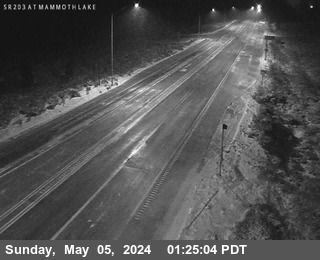Brought to you by Howard Sheckter
Mid Winter Blues to Continue this Week with Above Normal Temperatues and Light Winds….Slider Type System the end of the week may bring some Cooling and Breeze to the upper elevations….The Dry Stretch is likely to continue though Mid Month….
Monday February 5, 2018
Wednesday AM:
This is just a quick update on some of the models and the handling of the Sunday night/Monday system. This morning, the GFS has come into line with yesterday mornings Canadian in taking the short wave west more over CA Monday AM. However, The new Canadian is now further East. Obviously more time is needs for the Models to sync. BTW…the ECMWF is somewhere in-between….
This means that there will be at least some cooling, sierra crest winds will increase and there will be a slight chance of snow showers. Should the GFS this AM verify, there may be a few inches of snow Monday. as well as highs in the 30s
The Dweeber…..
Tuesday AM:
The is a slight change in the pattern coming as stronger short waves come out of the North Pacific and dive SE over the Pacific Northwest, Northern Great Basin and Rockies, the next 7 to 10 days. Although this pattern continues the trend of dryer than normal conditions for the Eastern Sierra, at least there will be periods of cooling and upper elevation wind. This will begin later this weekend and into next week. Both ECMWF, GFS and Canadian show a couple of chilly waves coming SE through in the Great Basin beginning the end of this weekend into next week. They handle the waves a little differently and so this will have to be watched over the next few days. Odds are best that this will only bring wind to the upper elevations and cooling. It is the 2nd wave that is of interest this morning. The EC and GFS take this wave over the Northern Great Basin and Rockies, so far enough east that they are moisture starved. However, the new 12Z Canadian model this morning is spinning the wave up over the Pacific Northwest Sunday night and dropping it south over California Monday. It shows the upper ridge off shore sharpening up and backing to near 140 west. This would be a cold showery pattern for Monday. I think that for the time being, the forecast should stay dry for CA as there is the most consistency in both the GFS and EC. However, at the same time, keeping an eye on those two models to see if there are any changes in the handling of that wave over the next two days.
Longer Range:
Per CPC discussion, although the MJO will be going into the colder phases for the Eastern US, the feeling was that there will be enough westerly flow across Canada to keep most of Arctic Air well to the north. However, it still maintains the Far Eastern Pacific Ridge, East Central Trof-Pattern across the CONUS. Looking at the Day Plus 11 means, the upper west coast ridge does retrograde a bit to about 140 west. This should be enough to allow periodic shots of energy over the Great Basin allowing cooler weather at times the following week. If the Ridge retrogrades to 140west, this would be a colder pattern for our area.
This is in itself is still a dry pattern. ( you can get light snow in a dry pattern) If the MJO continues its march eastward from phase 8 to 1 to 2 then 3 and remains coherent, it is conceivable that by week 4 (End of February and early March) snows will move back into the Sierra, based upon the MJO alone.
Last but not least, it appears that there will be a subtropical jet that develops over the Subtropical Eastern Pacific that may effect Southern CA…..Later this month.
Dr Howard and the Dweebs…………………:-)
_________________________________________________________
Monday 2/5/18 3:00pm
FYI Global models are trying brings us a cold inside slider type system around the 12th; Possibly a little before or a little after. ECMWF has the most over water trajectory. I only mention this as it is interesting to see that both the GFS and ECMWF are showing it to some degree. This is a pretty cold system and would be good for some light snow showers at the least, if it comes though at all. Stay Tuned…..
ECMWF EPS just started to Run…Will be interesting to see what it shows….
______________________________________________________________________________________________________________________________________________________
A negative tilt, upper ridge will remain parked off the west coast with dry weather and unseasonably warm temperatures continuing for the Eastern Sierra. Light breezes, night-time temperature inversions will keep over night lows in the teens along the highway 395 corridor and lows between 25 and 30 in the Town of Mammoth. The only change expected in the pattern in the medium range, will be a small slider type system over the weekend. This may increase breezes over the ridges and bring between 5 and 10 degrees of cooling by weeks end. The system will be moisture starved as its track is over land and not over the water. Although there are some variable solutions in the week 2 progs of the ECMWF and GFS, the vast majority of their ensembles continue the trend of dry weather through mid month. It is only during the second half of February that a meaningful change is expected in the pattern, the details of which are unclear.
For those wondering how the winter is faring water wise up on Mammoth Pass. DWP came in with their manual measurements a few days ago which determined that Mammoth Pass has 14.1 inches of water and is 51% of normal for February 1 and 33% of Normal for April 1st. The Town of Mammoth has 1.1 inches of water which is 8% of normal to date and 5% of normal for April 1st. (Huge Difference!)
When you check with the CA Department of Water Resources, you find that for the Central Sierra from Huntington Lake North to Calaveras’ Big Trees, that as of today, is in a dead heat with the Winter of 2014/2015 which was one of the driest years. However, that winter turned wetter that year during the first week of February where a storm brought between 2 to 3 inches of water between this week and next. So more than likely we will be behind the winter of 2015 this week. That puts the Central Sierra in a class between the Winter of 1977 and 2015. By the end of February, with a dry spell like this one, even with a wet March, it becomes increasingly difficult to have a meaningfully good water year….
Dr Howard and the Dweebs…………………:-)




